本帖最后由 高旭明 于 2025-8-13 22:01 编辑
Preparation for RMO and APMOPS after NMOS Previously, we had two article that explained about the information about RMO and APMOPS.For this article, we will be looking in at the competitions in detail,understanding their differences as well as going through how to prepare forthese two competitions. Comparison of Heavily Tested Modules We can first look at the heavily tested modules for the 3 different competitions,starting with the one which most P5 students have attended – NMOS.

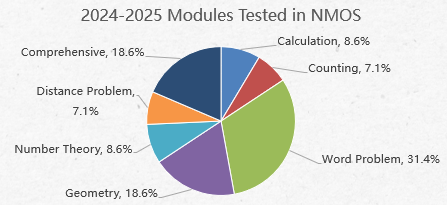
For NMOS, the 3 most tested modules are Word Problems, Geometry and Comprehensive. Comparingit to RMO as well as APMOPS, the data for these two competitions are put downbelow.

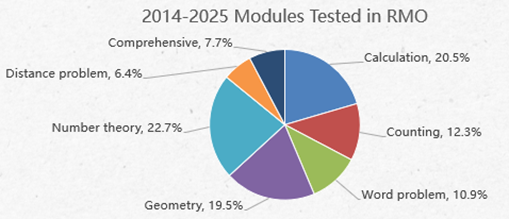

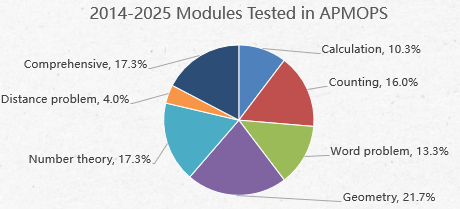
The most tested modules for RMO are Number Theory, Calculation and Geometry, while forAPMOPS the most tested modules are Geometry, Number Theory and Comprehensive. Wecan see that there are many differences between the heavily tested modules inthe 3 different competitions. Hence,doing well in NMOS does not automatically guarantee good results in RMO andAPMOPS, and we cannot be complacent. Similarly, if you did bad in NMOS, weshould treat the preparation for RMO and APMOPS as a completely new processstart over.
Broader Topics Tested
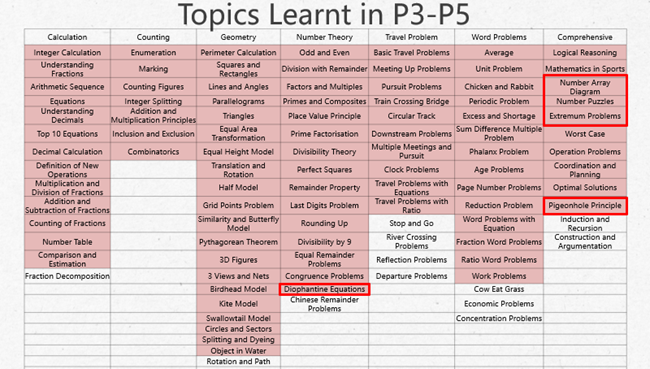
In the table above, all the topics that are learnt in primary Math Olympiad are shown.Those that are highlighted in pink are those topics that have already beentaught in P3-P5, while those that are not will be the additional topics thatare required for RMO and APMOPS. As for those that are circled in red, theseare the topics that need to be revisited as additional advanced concepts inthis year. We can seethat there are a lot more topics that are tested, and hence it would be morechallenging for students to go through all these knowledge points. Knowledge points tested in RMO and APMOPS are much harder Aside from this, although all these modules have been previously tested in NMOS, but thereare significant differences between the questions. Below is a comparison of aquestion in NMOS and RMO testing on Fraction Decomposition.
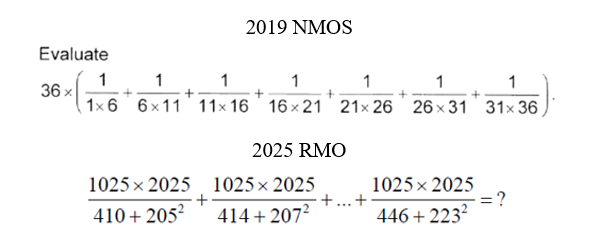
Compared to NMOS questions, RMO questions on the same topic presents a significantincrease in difficulty. It requires students to perform transformation of theequation as well as simplification before the application of formulas. WhileNMOS problems—such as fraction decomposition—tend to follow fixed, easilyrecognizable patterns, RMO problems demands stronger analytical skills.Students must be able to flexibly apply theorems to devise solutions. For thosethat have just been exposed to such abstract problems, this undoubtedly poses amajor challenge.
How can students be better prepared? Fill up gaps in knowledge points, revise, then practice
Some knowledge points tested in the RMO and APMOPS were not covered before theNMOS exam, meaning students must fill those gaps. However, simply coveringmissing topics is insufficient—many concepts from the NMOS also reappear inthese more advanced competitions, requiring thorough revision. Since RMO and APMOPS questions are significantly harder and often combine multipleconcepts, targeted practice is essential. Ideally, students should work throughpast papers from the last 10 years. But attempting full papers right away canbe overwhelming due to some missing foundational understanding and a sharpdifficulty spike from NMOS to RMO. As such, a structured approach is criticalbefore diving into full past papers, which is to start off from topical RMOpractice questions. Our teachers at Kangaroo.Study have carefully curated the past 5 years of RMO andAPMOPS questions into the seven modules, split according to their respectiveknowledge points and difficulty such that students are able to clearly targetthe specific knowledge point that they are weaker at and focus on it.
What do we have planned?
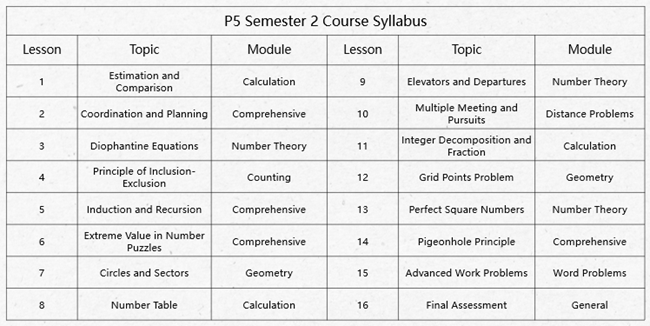
Our P5 Semester 2 Math Olympiad class is currently ongoing. It is on every Friday,6.30pm to 8.30pm, Saturday and Sunday 9.00am to 11.00am. With approximately 7 months remaining until RMO, we will firstcover all missing knowledge points for RMO, and work on advanced content thatwe have learnt before.
Entrance Test
If you are interested in signingup for the class, an entrance test must be taken first. This is not just anentrance test but also an assessment of essential knowledge for primary schoolMath Olympiad. After the test, there will be free explanations by our teachers
Testand Class Location: #02-12, Grantral Mall, 601 MacPherson Road, 368242 You can scan the QR code below to contactTr. Yu Xian for registration or further inquiries.

|